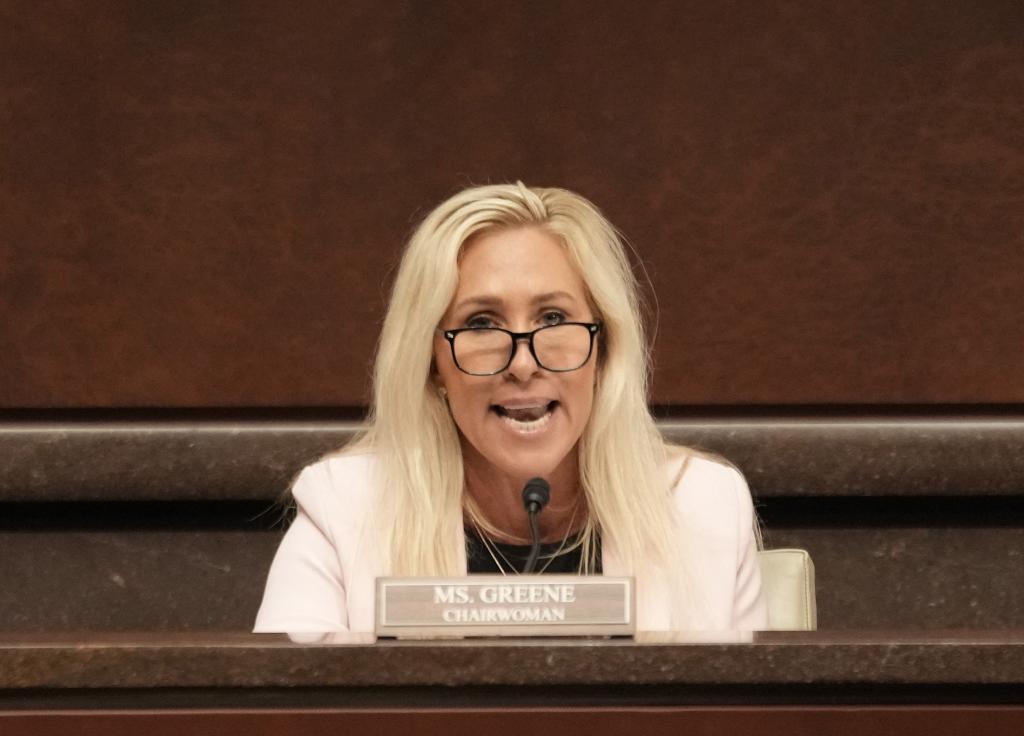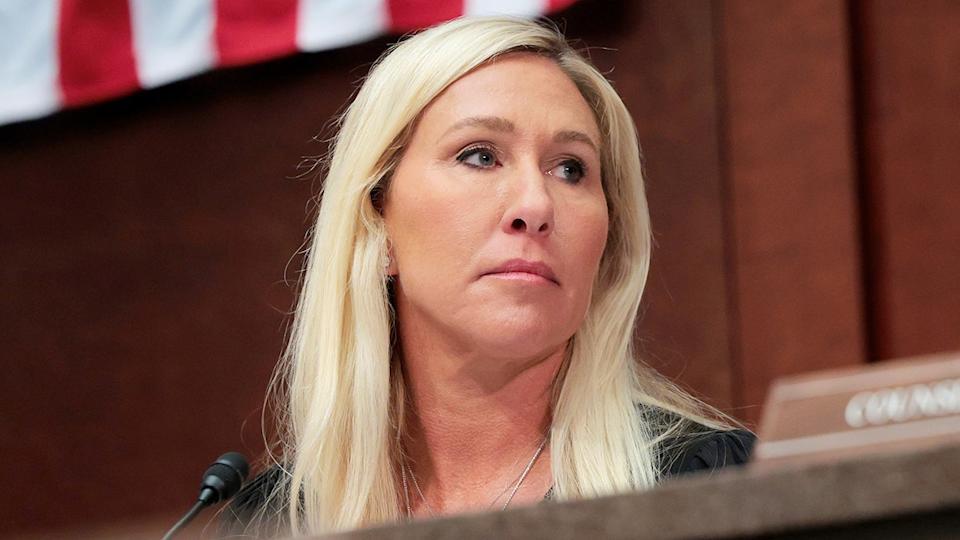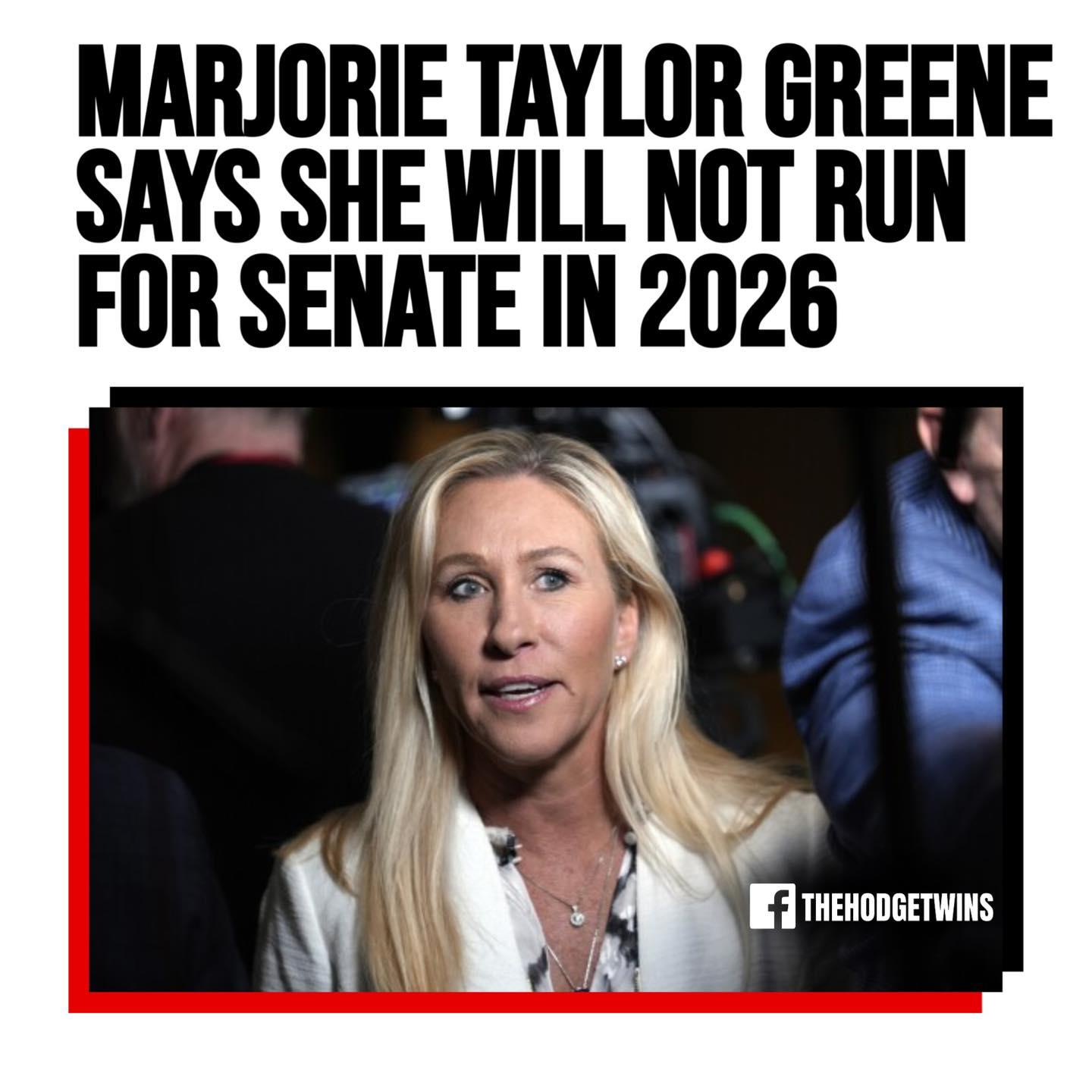U.S. Representative Marjorie Taylor Greene (R-GA) announced on Friday that she will not be entering the 2026 U.S. Senate race in Georgia, opting out of a potential challenge against incumbent Democratic Senator Jon Ossoff. The decision, shared in a lengthy social media post, marks the end of months of speculation about her political ambitions, though she left open the possibility of a future gubernatorial run.

Greene, a polarizing figure known for her staunch support of President Donald Trump and her hardline conservative rhetoric, cited her frustrations with the U.S. Senate as a key reason for her decision. “Someone once said, ‘The Senate is where good ideas go to die.’ They were right. That’s why I’m not running,” she wrote, criticizing the Senate’s structure for requiring 60 votes to pass major legislation, which she claims obstructs the will of the people.

The three-term congresswoman from Georgia’s 14th Congressional District also took aim at both Democratic Senator Jon Ossoff and the Republican establishment. She described Ossoff as a “silver-spoon progressive who’s never held a real job” and claimed that defeating him would be “easy.” However, she reserved much of her criticism for fellow Republicans, accusing “elite” party members of failing to deliver on campaign promises and protecting weaker candidates. “I won’t fight for a team that refuses to win, that protects its weakest players, and that undermines the very people it’s supposed to serve,” Greene stated.

Greene’s announcement comes just days after Georgia Governor Brian Kemp, a top Republican recruit, also declined to run for the Senate, prompting concerns among GOP strategists about the party’s chances in the competitive battleground state. Recent polls showed Greene trailing Ossoff by a significant margin, with one Atlanta Journal-Constitution survey indicating she lagged behind other potential GOP candidates, including Kemp, by double digits. Her polarizing reputation and history of controversial statements, including promoting conspiracy theories, have raised doubts about her electability in a statewide general election.
Despite her decision to forego a Senate bid, Greene expressed confidence in her political standing, noting that internal National Republican Senatorial Committee (NRSC) polling suggested any Republican could defeat Ossoff. She also hinted at other political aspirations, particularly a potential run for governor in 2026 to succeed the term-limited Kemp. “The outspoken MAGA star’s lengthy statement left open the door for another statewide run,” according to POLITICO, though she has not yet confirmed her plans.
Georgia, a purple state that narrowly supported Trump in the 2024 presidential election, is seen as a critical opportunity for Republicans to flip a Senate seat in 2026. With Greene and Kemp out of the race, U.S. Representative Buddy Carter is currently the only Republican to have officially entered the contest, though other names, including Representatives Rich McCormick and Mike Collins, are rumored to be considering bids.
Greene’s decision has been met with relief by some Republicans who feared a divisive primary or a general election loss due to her polarizing profile. “She can win a primary. She cannot win a general [election] in Georgia,” Georgia Republican strategist Brian Robinson told NBC News. Meanwhile, Ossoff, who has been fundraising off the prospect of a Greene campaign, continues to prepare for a competitive reelection battle.
As Greene focuses on her current role in the House, where she remains a prolific fundraiser and a prominent voice in the MAGA movement, her next steps will be closely watched. Whether she pursues the governor’s mansion or continues to shape the Republican agenda from Congress, her influence in Georgia politics shows no signs of waning.





